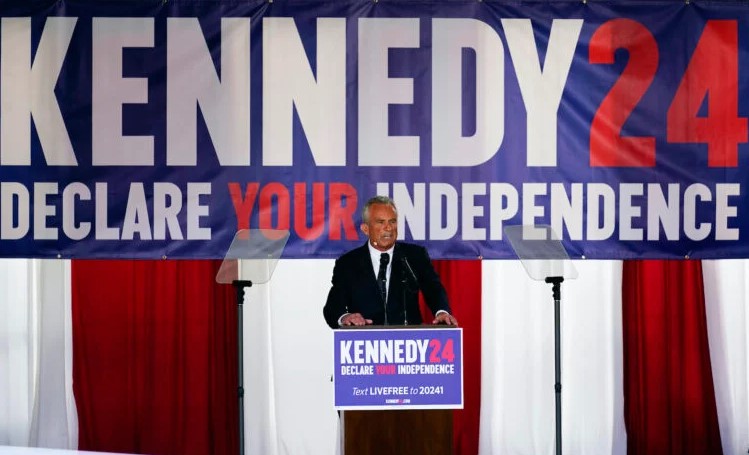Inside the Kennedy Funding Lawsuit: What You Need to Know
Are you ready for a behind-the-scenes look at a high-stakes legal battle that has captivated the financial world? Brace yourself, because we’re diving into the Kennedy Funding Lawsuit. In this intriguing case, lenders and borrowers clash in a courtroom showdown that will leave you on the edge of your seat. Join us as we unravel the details, examine the allegations, and analyze the implications of this sensational lawsuit. Whether you’re a borrower or lender, get ready to uncover valuable lessons from this legal saga that could shape the future of the financial industry. So grab your legal briefs and let’s explore what really happened inside the Kennedy Funding Lawsuit.
Background of the Lawsuit
The Kennedy Funding Lawsuit took center stage in the world of finance, sending shockwaves through the industry. At its core, this legal battle revolves around a dispute between lender Kennedy Funding and Fortis, two heavyweight players in the lending game.
It all began when Fortis filed a lawsuit against Kennedy Funding, alleging that they had defaulted on a significant debt. The case quickly gained attention due to its high stakes and complex legal arguments. As both parties dug their heels in, it became clear that this would be no ordinary courtroom showdown.
With tensions rising and millions of dollars hanging in the balance, the financial world held its breath as this bitter dispute played out. Investors watched closely for any sign of resolution or judgment that could potentially reshape lending practices and set precedent for future cases. Little did they know that this was just the beginning of a legal rollercoaster ride unlike any other.
Lender Kennedy is Sued by Fortis in Debt Case
In a surprising turn of events, lender Kennedy Funding finds themselves on the receiving end of a lawsuit filed by Fortis in a debt case that has captivated the financial industry. The once-powerful lending institution now faces allegations of misconduct and breach of contract as they navigate their way through this legal battle.
The lawsuit details various claims made by Fortis against Kennedy Funding, including accusations of predatory lending practices and failure to meet contractual obligations. These allegations have raised eyebrows within the industry and brought attention to the need for greater transparency and accountability among lenders.
As the case unfolds in court, analysts are closely examining both sides’ arguments to determine its potential implications for future lending practices. The outcome could set precedents that may reshape how borrowers interact with lenders, demanding more stringent regulations to protect their interests while ensuring fair treatment from financial institutions.
Lawsuit Details and Allegations
The lawsuit between Kennedy Funding and Fortis is not short on drama. Let’s dive into the details and allegations that have fueled this legal battle.
First, let’s take a look at the Royale Luau Resort LLC v. Kennedy Funding case. The lawsuit alleges that Kennedy Funding engaged in fraudulent activities by misrepresenting certain aspects of their lending practices to borrowers. This has led to substantial financial losses for Royale Luau Resort LLC, who claims they were deceived into accepting unfavorable loan terms.
In examining the case in the US 8th Circuit Court, it becomes clear that there are two sides to every story. While Royale Luau Resort LLC presents compelling evidence of fraud, Kennedy Funding vehemently denies these allegations and asserts that they acted within their rights as lenders.
Stay tuned as we delve deeper into this intriguing legal battle and explore key rulings, opinions from the court, and ultimately uncover what implications this lawsuit may have on the financial industry as a whole.
Examination of the Lawsuit in Royale Luau Resort LLC v. Kennedy Funding
The lawsuit between Royale Luau Resort LLC and Kennedy Funding has caught the attention of many in the financial industry. The case, which is currently being examined by the court, involves allegations of breach of contract and fraudulent misrepresentation.
In this legal battle, Royale Luau Resort LLC claims that Kennedy Funding failed to fulfill their obligations as a lender, resulting in substantial financial losses for the resort. They argue that Kennedy Funding misrepresented certain terms and conditions during the loan agreement process, leading to serious consequences.
As both sides present their arguments and evidence in court, it remains unclear how this lawsuit will unfold. Will Royale Luau Resort LLC be able to prove their claims against Kennedy Funding? Or will Kennedy Funding successfully defend themselves against these allegations?
Only time will tell how this examination plays out in court. Stay tuned for further updates on this high-profile case as we continue to monitor its progress and analyze its implications for borrowers and lenders alike.
Analysis of the Case in the US 8th Circuit Court
The case of Royale Luau Resort LLC v. Kennedy Funding has made its way to the US 8th Circuit Court, where it is being analyzed by legal experts and scrutinized for any potential implications in the financial industry. In this court, both sides present their arguments and evidence, hoping to sway the judges in their favor.
Legal experts closely examine every aspect of the case, from the initial loan agreement to the alleged breach of contract. They meticulously assess each piece of evidence presented before them and consider how it aligns with existing laws and regulations.
The US 8th Circuit Court holds immense importance as its ruling will set a precedent for similar cases that may arise in future. The decisions made by these judges can have far-reaching consequences on lenders, borrowers, and even other entities within the financial industry.
Stay tuned for updates on this crucial phase of litigation as we wait to see what analysis emerges from the US 8th Circuit Court regarding Royale Luau Resort LLC’s lawsuit against Kennedy Funding!
Resolving the Lawsuit
After months of legal battles and heated arguments, the Kennedy Funding lawsuit finally reached a resolution. The courtroom drama came to an end with several key rulings and opinions that have far-reaching implications for both borrowers and lenders in the financial industry.
In one of the most closely watched cases, Royale Luau Resort LLC v. Kennedy Funding, the court carefully examined all aspects of the lawsuit. Allegations were scrutinized, evidence was presented, and expert witnesses provided their insights into the matter at hand.
The US 8th Circuit Court played a pivotal role in determining how this case would be resolved. Judges meticulously analyzed every detail before rendering their decision. It was clear that they took this case seriously and understood its potential impact on future lending practices.
Stay tuned as we delve deeper into some of these crucial rulings and opinions in our next blog post! We’ll explore what these decisions mean for both borrowers and lenders involved in similar disputes. This landmark lawsuit has undoubtedly shaped new precedents within the financial industry, making it essential to understand its implications moving forward.
Remember to keep checking back as we continue to break down this fascinating case! Learn from it, adapt your strategies accordingly, and stay informed about any developments that could affect your own lending or borrowing experiences in the future.
Key Rulings and Opinions in the Kennedy Funding Lawsuit
The Kennedy Funding Lawsuit has seen its fair share of key rulings and opinions that have shaped the outcome of this high-stakes legal battle. Let’s take a closer look at some of the most significant developments.
One important ruling came from the US 8th Circuit Court, which upheld an earlier decision in favor of Fortis, the plaintiff in the case. The court found that Kennedy had indeed breached their contractual obligations and ruled in favor of Fortis’s request for damages.
Another crucial aspect to consider is the opinions expressed by legal experts throughout this lawsuit. Many experts believe that Kennedy Funding may have overstepped their bounds as a lender by engaging in questionable lending practices. This has raised concerns about potential repercussions for other lenders operating within similar parameters.
These key rulings and opinions shed light on the intricacies involved in this complex legal battle. As we continue to follow this lawsuit closely, it becomes evident just how crucial these decisions are in shaping not only this specific case but also potentially influencing future cases involving lenders and borrowers alike.
Implications and Outcomes of the Lawsuit
The Kennedy Funding lawsuit has far-reaching implications for both borrowers and lenders in the financial industry. The outcome of this case could potentially set a precedent for future disputes involving loan agreements and debt repayment. It highlights the importance of clear contractual terms and thorough due diligence before entering into any lending arrangement.
For borrowers, this lawsuit serves as a reminder to carefully review all terms and conditions before accepting funds from a lender. It emphasizes the need to fully understand the potential consequences of defaulting on loan payments or failing to meet agreed-upon obligations.
Lenders, on the other hand, may face increased scrutiny when it comes to their lending practices. This case underscores the significance of conducting comprehensive risk assessments and ensuring that all necessary legal requirements are met throughout the lending process. The outcomes of this lawsuit could lead to changes in regulations governing private lending institutions, affecting how they operate moving forward.
While we await further developments in this ongoing legal battle between Kennedy Funding and Fortis, it is crucial for both borrowers and lenders alike to take note of its implications. By learning from this high-stakes dispute, individuals within the financial industry can better protect themselves against similar challenges in the future
What to Learn from the Kennedy Funding Lawsuit
The Kennedy Funding lawsuit provides valuable lessons for both borrowers and lenders in the financial industry. For borrowers, it underscores the importance of thoroughly understanding the terms and conditions of any loan agreement before signing on the dotted line. It is crucial to engage legal counsel to review all documents and ensure that your interests are protected.
For lenders, this case highlights the need for due diligence when evaluating potential borrowers. Conducting comprehensive background checks, assessing creditworthiness, and verifying collateral are essential steps to minimize risk. Additionally, maintaining open lines of communication with borrowers throughout the repayment period can help mitigate disputes or misunderstandings down the road.
The possible impact on the financial industry as a whole cannot be ignored. This lawsuit serves as a reminder that transparency and ethical practices should be at the forefront of every transaction. Regulators may tighten lending regulations in response to such cases, potentially affecting borrowing costs or eligibility criteria.
Thorough knowledge, due diligence, effective communication- these principles apply not only within this specific lawsuit but also across all aspects of lending and borrowing in today’s complex financial landscape.
Lessons for Borrowers and Lenders
When it comes to the Kennedy Funding lawsuit, there are important lessons to be learned for both borrowers and lenders. First and foremost, borrowers should always thoroughly review and understand the terms of any loan agreement before signing on the dotted line. This includes carefully examining interest rates, repayment schedules, and any potential penalties or fees.
It is crucial for borrowers to conduct proper due diligence on their lender. Researching their reputation in the industry can help uncover any red flags or warning signs that may indicate potential issues down the line. Additionally, seeking legal advice before entering into a loan agreement can provide valuable guidance and protection.
On the other side of the equation, lenders must ensure they are operating within legal boundaries when structuring loans. It is essential to accurately disclose all terms and conditions upfront while avoiding predatory lending practices that could land them in hot water.
By understanding these key lessons from the Kennedy Funding lawsuit case study, borrowers can protect themselves from potentially unfavorable agreements while lenders can mitigate risks associated with non-compliance or questionable practices in order to maintain a positive reputation in the financial industry.
Possible Impact on the Financial Industry
The Kennedy Funding lawsuit has significant implications for the financial industry. First and foremost, it highlights the importance of thorough due diligence when entering into lending agreements. Lenders must ensure that all necessary legal documentation is in order to avoid potential lawsuits like this one.
This case serves as a reminder for borrowers to carefully review their loan terms and conditions before accepting funding. It emphasizes the need to fully understand the obligations and potential consequences associated with borrowing money from private lenders.
This lawsuit may have broader ramifications for the financial industry as a whole. It could lead to increased scrutiny and regulation of private lending practices, as lawmakers seek to protect borrowers from predatory lending practices and prevent similar disputes from arising in the future.
While it remains uncertain how exactly this lawsuit will impact the financial industry moving forward, it undoubtedly underscores the importance of transparency, accountability, and fairness in all lending transactions.
Conclusion: Takeaways from the Kennedy Funding Lawsuit
The Kennedy Funding lawsuit has shed light on the complexities and challenges that can arise in the lending industry. As we have seen, even experienced lenders like Kennedy Funding can find themselves embroiled in legal battles.
For borrowers, it is crucial to carefully review loan agreements and understand all terms and conditions before entering into any financial arrangement. This case serves as a reminder to borrowers of their rights and responsibilities when dealing with lenders.
Additionally, this lawsuit could potentially impact the financial industry as a whole. Lenders may now be more cautious when providing funding for large-scale projects, considering potential legal ramifications that could arise down the line.
While lawsuits like these are not uncommon in the business world, they serve as valuable lessons for both borrowers and lenders alike. It emphasizes the importance of transparency, due diligence, and open communication between all parties involved in any financial transaction.
As always, staying informed about current litigation trends is essential for anyone operating within the lending landscape. By learning from cases such as this one involving Kennedy Funding, businesses can better navigate potential legal pitfalls and protect their interests moving forward.







